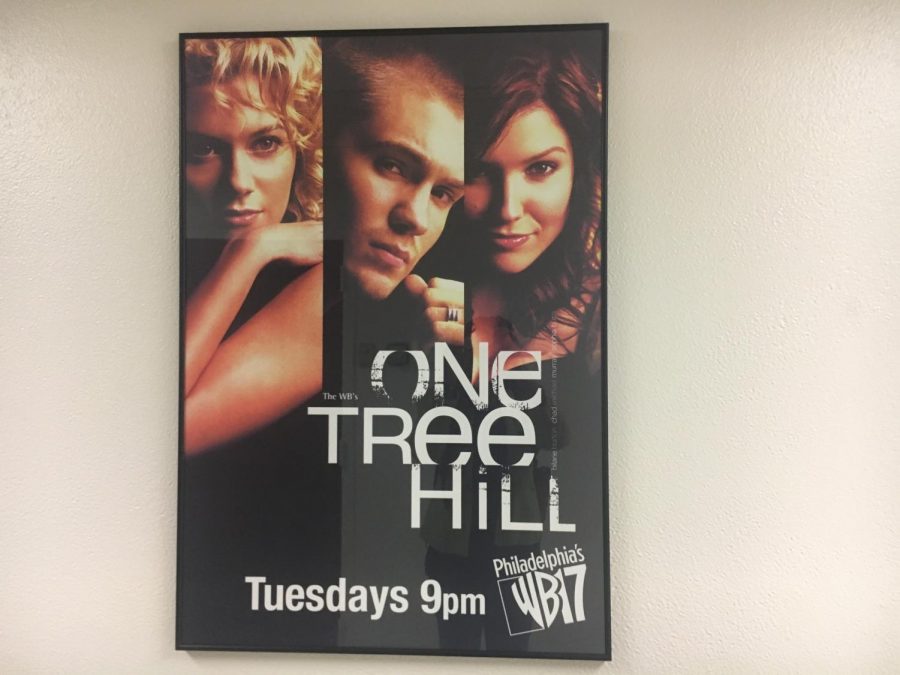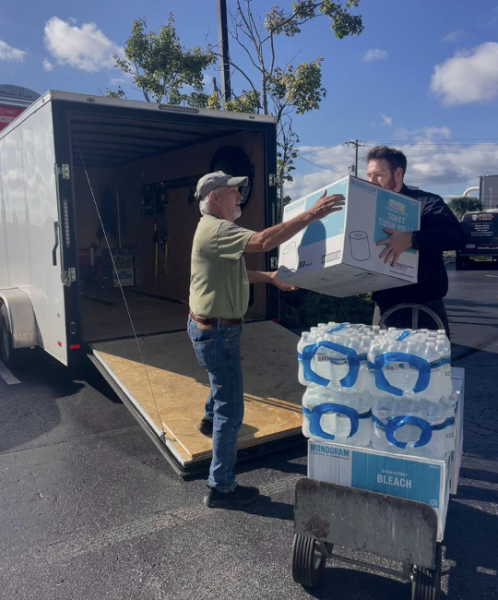Wilmington continues to rebound from film incentive reductions
Fairley Lloyd
A “One Tree Hill” poster hangs in King Hall, which is home to the UNCW Department of Film Studies. “One Tree Hill” was filmed in Wilmington from 2003-2012.
Will Wilmington’s film industry continue to resurface this year?
DC Universe’s “Swamp Thing,” a superhero show based on the eponymous monster, started filming in Wilmington in 2018 and is expected to wrap by the end of the year.
“Swamp Thing” has already provided work for many North Carolinians. According to Star News, the production estimated hiring 521 crew members from the state. About 3,200 people were hired as background actors and extras, with more than 3,000 being local residents.
Filming of movies and television productions has a long history not only in Wilmington but throughout the state. Television series such as “Dawson’s Creek” and “One Tree Hill,” two successful network dramas of the early 2000s, were both filmed in Wilmington.
“Dawson’s Creek” won the 1999 Teen Choice Award for Choice Drama; “One Tree Hill” was nominated for the 2006 Image Awards for “Outstanding Directing in a Dramatic Series.” The latter series has gained a second wind of popularity, particularly among UNCW students.
Some films have been produced in Wilmington on an even larger scale. StarNews reported that “Iron Man 3,” released in 2013, remains the largest production in North Carolina. According to Box Office Mojo, the superhero film is the 17th-highest grossing film worldwide, and one of a handful of Marvel films to gross over $1 billion.
Film has proven to be a prosperous industry across North Carolina. However, there has been a decline in filming in the state since the release of “Iron Man 3.”
Many studios have left due to the reduction of tax incentives in which states give a refund to a film or television series that is filmed in the state.
Tax incentives have gone up and down over the years, which is often influenced by the majority political party of the moment.
Former North Carolina Governor Pat McCrory approved the reduction of film tax credits in North Carolina during his time in office. Around the same time, Georgia had raised its incentives, attracting many film productions who previously worked in North Carolina.
In addition, the controversial House Bill 2 passed during McCrory’s time in office turned off many companies from filming in North Carolina. The bill, which was signed in 2016, was declared transphobic by many critics. Despite the bill being partially repealed by current Governor Roy Cooper, critics argue that the bill retains much of its anti-LGBT language.
However, things have gradually changed for the film industry over the last few years. When Cooper was elected governor of North Carolina in 2017, he proposed to raise the state’s tax incentives for filming. WWAY reported that Cooper’s proposed incentive would bring up to $9 million per television series, $12 million per feature film, and $250,000 for commercials.
The North Carolina Department of Commerce provides money for filming in the state through the Film and Entertainment Grant Program; the pilot for “Swamp Thing” received a grant funding return of around $5 million dollars for the $20 million spent producing the pilot.
Smaller, independent films that often don’t qualify for the grant program receive support from other organizations such as the Cucalorus Film Festival.
The biggest predictor of increasing film production in North Carolina heavily relies on the community itself.
“Film is really important to the identity of this town,” said Mariana Johnson, chair of the Department of Film Studies at UNC Wilmington. “That’s not just because it creates jobs, but also because the film industry and culture make the city interesting, vibrant, diverse — the sorts of things that attract people to Wilmington.”
Jocabed Aragon, a film studies alumna of UNCW who works in production, stressed the importance of the local community taking action to bring filming back to Wilmington.
“Support local films,” Aragon said. “It doesn’t matter how large or small the scale of the productions is. Call your representatives; they are the ones who decide the future of film. Show that the community cares about this industry.”












